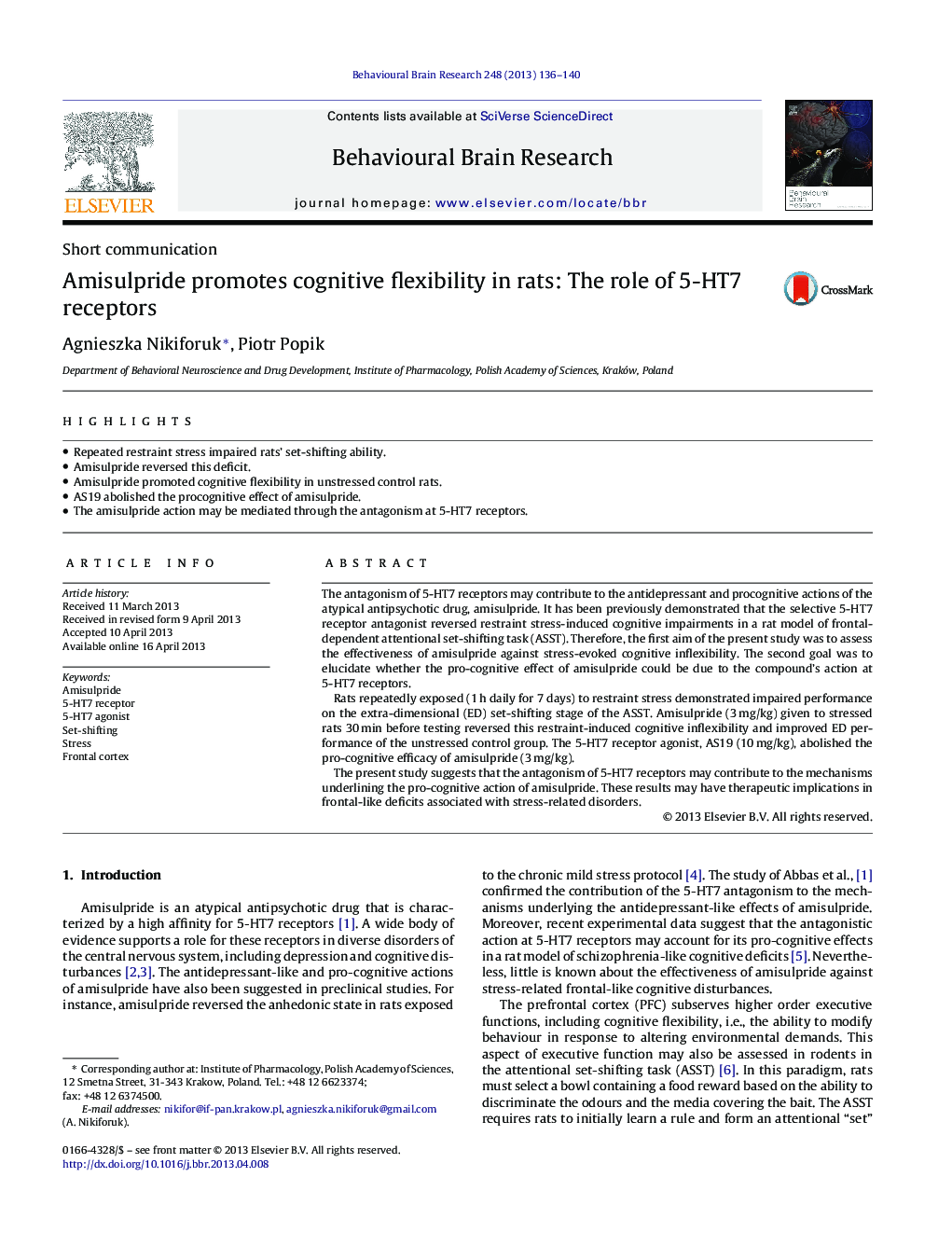| کد مقاله | کد نشریه | سال انتشار | مقاله انگلیسی | نسخه تمام متن |
|---|---|---|---|---|
| 6259165 | 1612984 | 2013 | 5 صفحه PDF | دانلود رایگان |

- Repeated restraint stress impaired rats' set-shifting ability.
- Amisulpride reversed this deficit.
- Amisulpride promoted cognitive flexibility in unstressed control rats.
- AS19 abolished the procognitive effect of amisulpride.
- The amisulpride action may be mediated through the antagonism at 5-HT7 receptors.
The antagonism of 5-HT7 receptors may contribute to the antidepressant and procognitive actions of the atypical antipsychotic drug, amisulpride. It has been previously demonstrated that the selective 5-HT7 receptor antagonist reversed restraint stress-induced cognitive impairments in a rat model of frontal-dependent attentional set-shifting task (ASST). Therefore, the first aim of the present study was to assess the effectiveness of amisulpride against stress-evoked cognitive inflexibility. The second goal was to elucidate whether the pro-cognitive effect of amisulpride could be due to the compound's action at 5-HT7 receptors.Rats repeatedly exposed (1Â h daily for 7 days) to restraint stress demonstrated impaired performance on the extra-dimensional (ED) set-shifting stage of the ASST. Amisulpride (3Â mg/kg) given to stressed rats 30Â min before testing reversed this restraint-induced cognitive inflexibility and improved ED performance of the unstressed control group. The 5-HT7 receptor agonist, AS19 (10Â mg/kg), abolished the pro-cognitive efficacy of amisulpride (3Â mg/kg).The present study suggests that the antagonism of 5-HT7 receptors may contribute to the mechanisms underlining the pro-cognitive action of amisulpride. These results may have therapeutic implications in frontal-like deficits associated with stress-related disorders.
Journal: Behavioural Brain Research - Volume 248, 1 July 2013, Pages 136-140